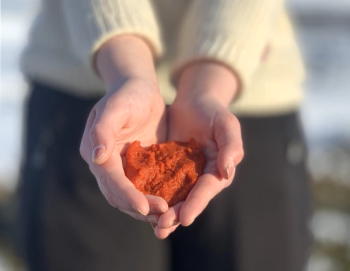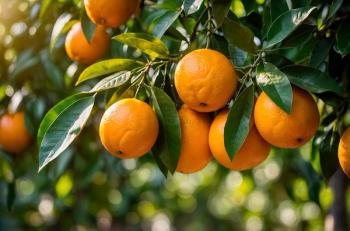
Can Powdered Kale Lower Blood Pressure, Blood Glucose, and Cholesterol?
An exploratory study suggests fujiKale may offer cardiovascular health benefits.
Although the American obsession with eating kale at restaurants may be on the
Researchers at Kyushu University Graduate School of Medical Sciences (Fukuoka, Japan) studied 80 male and female participants aged 30-74 over the course of 12 weeks, tracking their blood pressure, blood glucose, and lipid metabolism. For the first four weeks, participants did not ingest the kale powder and were evaluated weekly for the aforementioned cardiovascular markers. For the final eight weeks, participants ingested 14g of fujiKale per day, typically by mixing the powder into water.
By the study’s conclusion, all of the cardiovascular markers showed improvement. Average systolic blood pressure rose slightly over the first four weeks prior to ingestion from 133 to 137.9, but by the end of the 12 weeks it had dropped to a group average of 129.2. Similarly, average diastolic blood pressure went from 86.1 at the beginning of the trial to 88.3 at the end of the 4-week pre-kale period, but dropped to 82.5 by the end of the study.
The group average for fasting blood glucose also dropped from 96.9 mg/dL before the kale ingestion period to 95.1 mg/dL at the study’s conclusion. LDL cholesterol decreased from an average 115.0 mg/dL at the start of the ingestion period to 109.6 mg/dL at the end of the study.
Results of the study, titled “An exploratory study of the efficacy of Q’SAI kale powder (fujiKale) on lifestyle diseases,” were announced at the 37th Annual Scientific Meeting of the Japanese Society of Hypertension.
“We have confirmed that Q’SAI kale powder (fujiKale) is effective in improving blood pressure, blood glucose, and lipid metabolism in study subjects,” said Tomomi Ide, who conducted the study and is an instructor at the Deparment of Cardiovascular Medicine at Kyushu University Graduate School of Medical Sciences.
The study comes on the heels of the U.S. release of fujiKale in January and the recent formation of Q’SAI USA as a U.S. subsidiary of the Japanase Q’SAI Co. (Fukuoka, Japan). The company says fujiKale has been sold in Japan for more than 30 years. One 5g scoop of fujiKale is equivalent to a 70g cup of chopped kale, according to a press release.
“It’s no secret that most Americans don’t eat enough vegetables, and many have yet to discover the nutritious value of kale,” said Murray Brannen, CEO, Q’SAI USA. “Fresh kale can be expensive and you have to clean it, cut it, and prepare it, which are obstacles in many households. But with fujiKale, it’s easy to add a vitamin-packed scoop to a variety of recipes, smoothies, or beverages.”
Study details are courtesy of Murray Brannen, CEO, Q’SAI USA.
Michael Crane
Associate Editor
Nutritional Outlook magazine
Photo © iStockphoto.com/tpzijl
Newsletter
From ingredient science to consumer trends, get the intel you need to stay competitive in the nutrition space—subscribe now to Nutritional Outlook.





